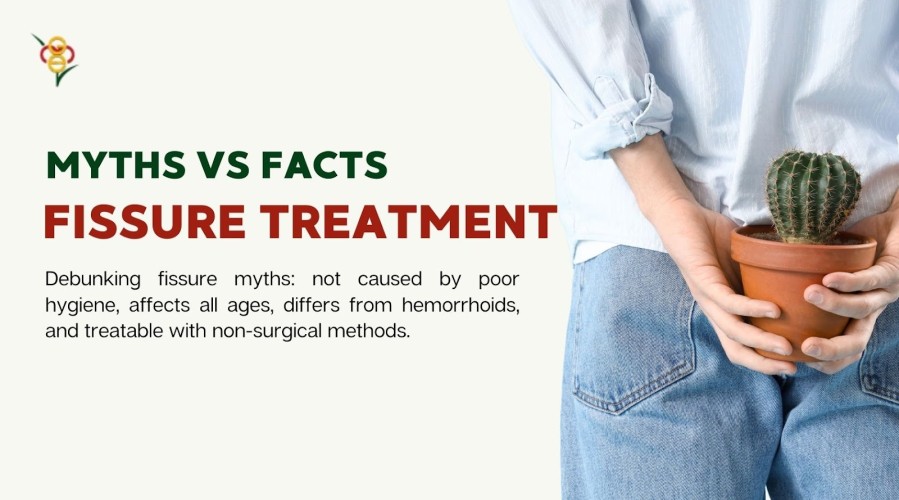Learn what gallstones are, their common symptoms, causes, and treatment options. Discover when to seek medical care and how to manage gallstone complications effectively.
Debunking Common Myths About Fissures and Their Treatment

Debunking Common Myths About Fissures and Their Treatment
Fissures, small tears in the lining of the anus, are a common yet misunderstood medical issue. In this blog, we'll debunk some common myths about fissures and their treatment, providing you with accurate information to better understand and address this condition.
Fissures Are Caused by Poor Hygiene
The Truth About Fissure Causes
Contrary to popular belief, fissures are not caused by poor hygiene. They often result from trauma or injury to the anal canal, such as:
- Passing large or hard stools
- Chronic constipation
- Severe diarrhea
- Childbirth
These factors can lead to a tear in the delicate tissue, causing pain and discomfort.
Only Older Adults Get Fissures
Fissures Can Affect Any Age Group
Fissures can affect individuals of any age, from infants to the elderly. While they are more common in young adults and middle-aged people, they can occur at any stage of life. Babies often develop fissures due to the passage of hard stools.
Fissures and Hemorrhoids Are the Same
Distinguishing Fissures from Hemorrhoids
Fissures and hemorrhoids are different conditions, though they both affect the anal area.
- Fissures: Small tears in the lining of the anus, causing sharp pain and bleeding during bowel movements.
- Hemorrhoids: Swollen blood vessels in the rectal area, leading to itching, discomfort, and bleeding.
Understanding the distinction is crucial for effective treatment.
Surgery Is the Only Treatment for Fissures
Non-Surgical Treatments for Fissures
Many people believe surgery is the only way to treat fissures, but there are several non-surgical treatments available:
- Dietary Changes: Increasing fiber intake can soften stools and reduce strain during bowel movements.
- Topical Medications: Creams and ointments can promote healing and alleviate pain.
- Sitz Baths: Soaking the anal area in warm water can help relax the muscles and improve blood flow.
- Hydration: Drinking plenty of water keeps stools soft and easier to pass.
These methods are often effective in treating acute fissures.
Fissures Always Require Medical Attention
When to Seek Medical Advice
While many fissures heal on their own with proper self-care, there are times when medical attention is necessary:
- Chronic Fissures: If a fissure lasts longer than six weeks, it may require medical treatment.
- Severe Pain: Persistent or severe pain warrants a visit to the doctor.
- Recurring Issues: Frequent fissures could indicate an underlying condition that needs to be addressed.
Home Remedies Are Ineffective
Effective Home Remedies for Fissures
Home remedies can be quite effective in managing and healing fissures. Some beneficial practices include:
- High-Fiber Diet: Incorporate fruits, vegetables, and whole grains into your diet to prevent constipation.
- Regular Exercise: Physical activity can improve digestion and reduce the risk of constipation.
- Proper Bathroom Habits: Avoid straining and do not delay bowel movements, as this can worsen the fissure.
Schedule an Appointment at GEM Hospital
If you’re experiencing symptoms of a fissure or if your condition isn’t improving with home care, it’s essential to seek professional medical advice. At GEM Hospital, our experienced team is here to provide you with the best possible care and treatment options. Don’t let fissures affect your quality of life – schedule an appointment with us today to get the relief you need.
Blogs & Article
Learn about bloating and gas problems, including common causes, symptoms, and effective solutions to improve digestion, reduce discomfort, and maintain gut health.
Learn how unverified Ayurveda treatments may cause liver damage, understand the risks, symptoms, and why medical guidance is essential for safe care.


